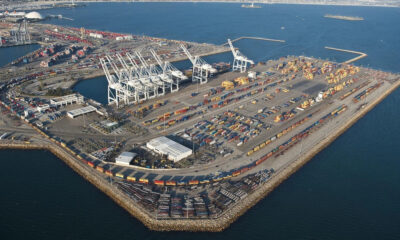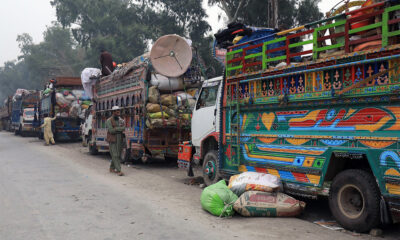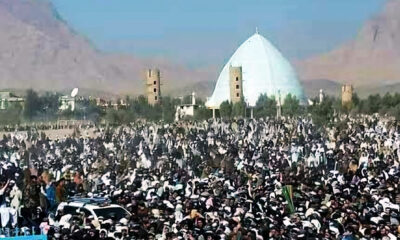Latest News
Bayat Power set to launch phase two of its gas to electricity power generating project

Bayat Power is hoping to start work on phase two of Bayat Power-1 in northern Jawzjan province in order to increase its electricity production output for Afghanistan.
Company officials said Sunday they have started discussions with relevant government departments in order to start the project.
Mohammad Shoaib Sahibzada, the technical head of Bayat Power, said once complete the second phase of the power plant project will add about 100 megawatts of electricity to the national grid. He said eventually, phase three will push output up to 200 megawatts.
In 2019, Bayat Power started work on Bayat Power-1’s 40MW gas-fired turbine, which achieved commercial operation later that year in Sheberghan. The plant uses Siemens Energy’s SGT-A45 mobile gas turbine, which will be integrated into phase two of the project.
Sahibzada meanwhile said phase one of the project, completed in November four years ago, has an output capacity of 40 megawatts and has provided hundreds of thousands of people with electricity in this time.
He also stated that the SGT-A45 turbine has the ability to produce 300 million kilowatts of electricity annually, which will be supplied to residential areas, mosques, universities, schools and hospitals in Jawzjan, Sar-e-Pul and Balkh provinces.
“The leadership of Bayat Power is in contact with the relevant departments and officials. Talks have started so that we can begin and implement the second phase of this project,” said Sahibzada.
He added that they have a contract with Da Afghanistan Breshna Sherkat (DABS), the country’s power supply company, for the distribution and regulation of electricity produced by Bayat Power, and that the company has signed another contract with Afghan Gas Company to increase the supply of natural gas.
Sahibzada also said Bayat Power has close working partnerships with DABS, Afghan Gas and other institutions including the Ministries of Mines and Petroleum, Energy and Water, as well as Siemens Energy – all of which help to provide more electricity to the nation.
“The benefits of this project from the point of view of electricity supply is that it was already able to provide electricity to hundreds of thousands of families, and the installed turbine has the [output] capacity of 40 megawatts of electricity,” Sahibzada added.
He also said phase two will bring the company closer to reaching its goal of producing 300 million kilowatt hours of electricity annually.
The Islamic Emirate has meanwhile welcomed Bayat Power’s plans to expand the output capacity. The IEA’s spokesman Zabihullah Mujahid said the Islamic Emirate gives its full support to the private sector.
“For the Islamic Emirate of Afghanistan, electrical energy is very important, it has vital value. Therefore, the Islamic Emirate pays a lot of attention to the private sector, if a company obtains an achievement, it means that it has been paid attention to. The Islamic Emirate has used all the possibilities to support the private sector and they are definitely moving forward,” said Mujahid.
Bayat Power was founded by the Bayat Group in 2013 with the aim of providing domestically produced electricity to the people of Afghanistan.
The power plant utilizes advanced and efficient technology, offering significantly more power and higher efficiency compared to other mobile gas turbines worldwide.
The project, in addition to generating significant tax revenues to the government, has created thousands of direct and indirect job opportunities for Afghans, contributing to the nation’s economic condition and fostering new technical skill sets amongst talented citizens.
Bayat Power, is in fact a trailblazer in Afghanistan’s independent power production sector, and just last week was awarded the prestigious Asian Power Award 2023 for its groundbreaking gas-fired mobile power plant.
On hand to accept the award on Wednesday night was Bayat Power’s CEO Ali Kasemi who said it was an honor and a privilege for the company to receive the accolade. He also said the award was an acknowledgement of the hard work and tenacity of Afghans in their quest for energy security and self-sufficiency in the power sector.
“Bayat Power is extremely proud that the Asian Power Awards have recognized our project as the Gas Power Project of the Year in Afghanistan. But we are even prouder of our continued efforts to improve the lives of Afghans across the country, enabling students to study at night, allowing health workers to provide critical services 24/7, supporting factory production, and lighting up cities, streets, mosques, and homes nationwide,” said Kasemi.
Latest News
Islamic Emirate faces a wave of negative propaganda: Supreme leader
In his speech, Akhundzada emphasized on avoiding division and disunity, stating that the survival of the system lies in unity and solidarity.
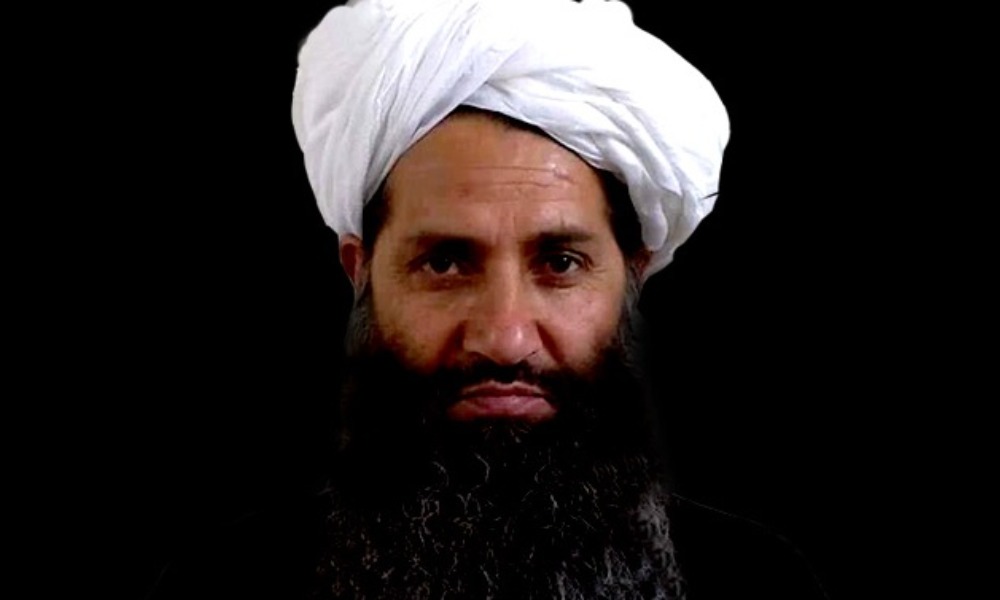
Mawlawi Hibatullah Akhundzada, supreme leader of the Islamic Emirate of Afghanistan (IEA), led Eid-ul-Fitr prayer in Kandahar province on Sunday, attended by thousands of people.
In his speech, Akhundzada emphasized on avoiding division and disunity, stating that the survival of the system lies in unity and solidarity.
He added that the Islamic Emirate is facing a wave of negative propaganda, and its enemies are using these tactics to incite war and conflict in the country once again.
He warned that division would lead to the failure of Muslims and the collapse of systems.
The leader of the Islamic Emirate further mentioned that they sacrificed their lives for 20 years to achieve victory in jihad, and protecting this system requires even more sacrifices.
He called on the people, the forces of the Islamic Emirate, and officials to obey the leadership’s orders, emphasizing that the absence of leadership in the past led to civil wars, which must not be repeated.
Latest News
Pakistan finalizes plans to detain and deport Afghans as deadline nears
Pakistan has granted Afghan migrants, both undocumented and those holding ACC cards, a deadline of March 31 to voluntarily leave the country.
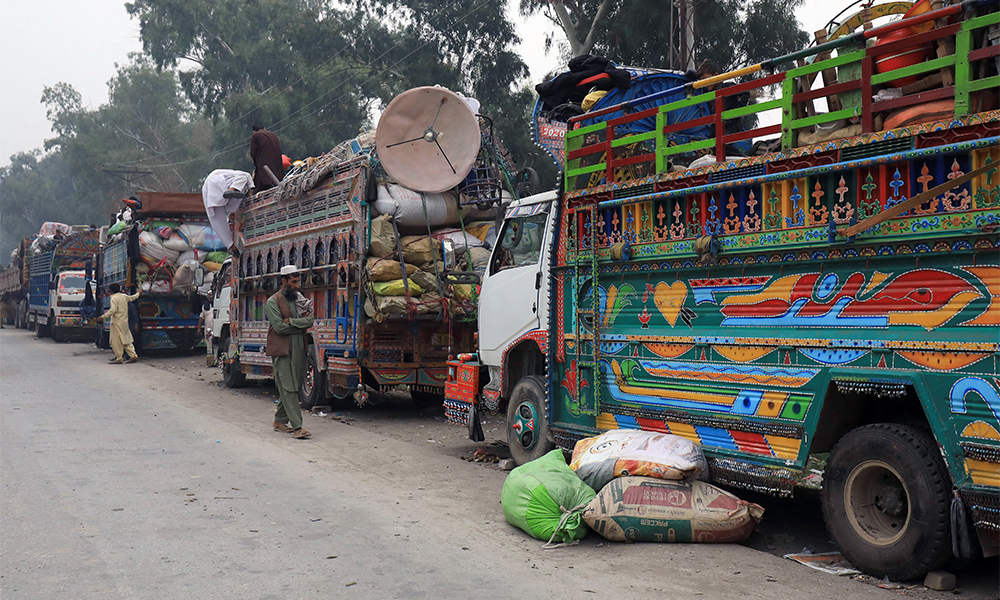
Officials in Pakistan have completed arrangements to detain and expel Afghan citizens following the March 31 deadline for their voluntary return to Afghanistan. This move is part of the country’s plan to address the growing concerns regarding the status of Afghan migrants in Pakistan.
A high-level meeting on Friday, chaired by Interior Minister Mohsin Naqvi, reviewed the measures to repatriate Afghan Citizen Card (ACC) holders. This meeting focused on ensuring the effective execution of the government’s deadline and the logistics surrounding the return process.
Despite requests from the Afghan government and human rights organizations, Pakistani authorities have firmly rejected extending the deadline for the return of ACC holders. The Pakistani government had initially set the deadline for the end of March, and the expulsion process will move forward as planned.
Mohsin Naqvi also revealed that Talal Chaudhry, the State Minister for Interior, would travel to the provinces to assess and address any challenges and potential issues in the process of Afghan migrants’ return.
Meanwhile, Pakistani security forces have detained at least 932 Afghan migrants in Rawalpindi, as the deadline for the expulsion of Afghan migrants with ACC cards approaches.
Human rights organizations have strongly condemned Pakistan’s recent decision to expel Afghan refugees, labeling it a violation of international law and a potential humanitarian crisis. They argue that many of these refugees, including human rights defenders, political activists, and victims of gender-based violence, fled Afghanistan to escape persecution and are now at risk of facing harm if deported.
The Human Rights Commission of Pakistan (HRCP) has expressed deep concern over the government’s ultimatum for undocumented immigrants to leave by March 31, warning that this could lead to a humanitarian disaster. They highlight that such forced repatriation violates international customary law and could adversely affect vulnerable groups, including women, children, the elderly, and individuals with disabilities.
Amnesty International has called on Pakistan to halt the detentions, deportations, and harassment of Afghan refugees, emphasizing that these actions violate the principle of non-refoulement, which prohibits returning individuals to places where they face risks of persecution. They stress that deporting Afghan refugees, especially women and girls, could deny them access to safety, education, and livelihoods.
Pakistan has granted Afghan migrants, both undocumented and those holding ACC cards, a deadline of March 31 to voluntarily leave the country.
However, Pakistani officials confirmed that Afghan migrants holding “PoR” cards are not at risk of being expelled until June 30.
Meanwhile, the International Organization for Migration (IOM) reported a sharp decline in Afghan returns and deportations during the first half of March. Between March 1 and 15, returns dropped by 67 per cent, while deportations fell by 50 per cent compared to the previous reporting period (February 16-28).
Latest News
Eid prayer led by IEA leader in Kandahar: Mujahid
Abdul Salam Hanafi, the Deputy Prime Minister for Administrative Affairs, called on opposition groups to return to Afghanistan and participate in the country’s reconstruction.
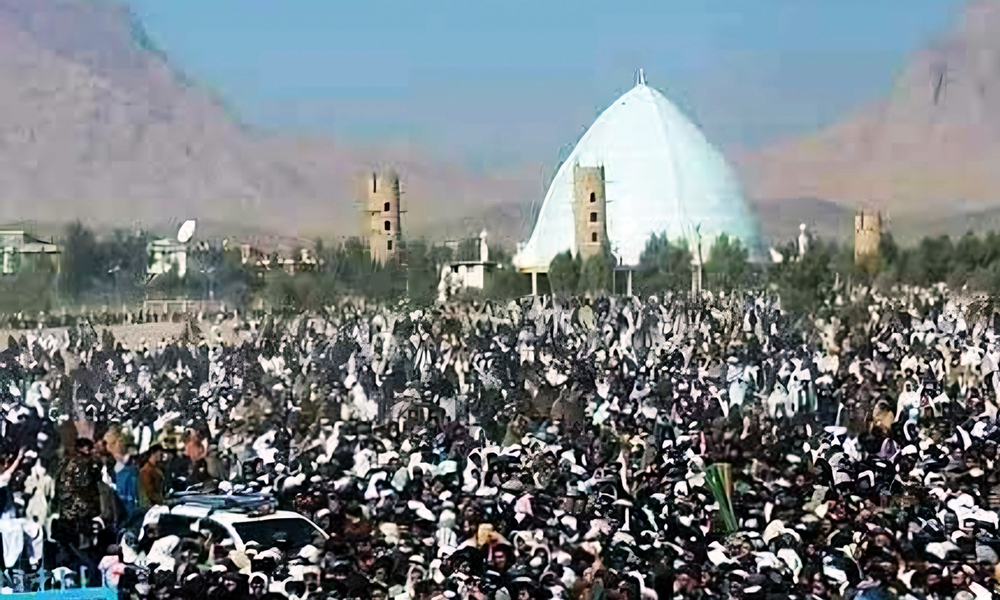
Zabihullah Mujahid, the spokesperson for the Islamic Emirate, announced on Sunday that the Eid al-Fitr prayer was held at the Eidgah Mosque in Kandahar, where Hibatullah Akhundzada, the Supreme Leader of the IEA, led the prayers.
Thousands of people attended the event, marking a significant religious occasion.
Other IEA senior officials gathered for the Eid prayer at the ARG (Presidential Palace) in Kabul.
Mullah Abdul Ghani Baradar, the Deputy Prime Minister for Economic Affairs, took the opportunity to address the public, stating that the Islamic Emirate is ready to engage with the world based on mutual respect. He also emphasized the importance of unity and solidarity among the Afghan people.
Baradar stressed that rebuilding the country requires internal unity and that no foreign entity can achieve this task for Afghanistan. On security, he highlighted the achievements of the past three years, asserting that under their administration, Afghanistan has become fully secure.
He reaffirmed that the IEA is committed to fostering international relations through an “economy-driven policy.”
Abdul Salam Hanafi, the Deputy Prime Minister for Administrative Affairs, called on opposition groups to return to Afghanistan and participate in the country’s reconstruction.
Hanafi reiterated the IEA’s desire for economy-driven relations with all regional and global powers based on mutual respect.
Mohammad Yousuf Wafa, the Governor of Balkh, also affirmed that the current system will not be undermined. He stated, “This system was established through great sacrifices, and it is our collective duty to defend it.”
The Eid prayers and the speeches of the IEA leadership underscored a message of unity, security, and a desire for positive international engagement.
-

 World5 days ago
World5 days agoSecretive Chinese network tries to lure fired US federal workers, research shows
-

 Latest News4 days ago
Latest News4 days agoAfghanistan has the right to access Amu River’s water: Uzbek minister
-

 Latest News3 days ago
Latest News3 days agoAmnesty international urges Pakistan to halt Afghan deportations
-

 Climate Change4 days ago
Climate Change4 days agoUN and ICRC warn of serious water shortage in Afghanistan
-

 International Sports4 days ago
International Sports4 days agoIPL 2025: Punjab Kings secure thrilling 11-run win over Gujurat Titans
-
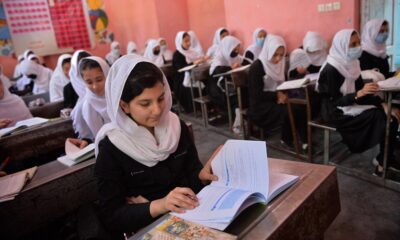
 Latest News4 days ago
Latest News4 days agoUN ‘deeply disappointed’ over ongoing ban on girls’ secondary education
-

 Latest News3 days ago
Latest News3 days agoAfghanistan-Iran-Europe railway corridor activated
-

 Business3 days ago
Business3 days agoAfghanistan ships first consignment to Europe via Khaf-Herat railway




